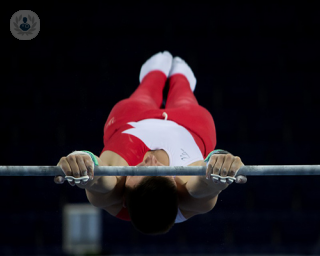Sudden Cardiac Death
What is it?
Sudden cardiac death (SCD) is a condition involving a sudden loss of consciousness followed by a cardiac arrest, which leads to natural death. There are no warning symptoms, and often SCD can happen to people who had never been diagnosed with a heart disorder.

Prognosis
A heart attack is a medical emergency. If you’re going into cardiac arrest, it is crucial that you receive immediate medical assistance. Sudden cardiac death causes around 10% of deaths in the UK. As of today, survival rates are as low as 2%.
How is it diagnosed?
85% of the cases of SCD are caused by ventricular fibrillation and ventricular tachycardia. In some cases, a heart attack may be caused by an anomaly in the heart’s electrical function failing to stimulate the cardiac pump correctly, which interferes with the brain’s oxygen supply. In the vast majority of cases, this causes a permanent brain damage.
What causes it?
As we’ve said before, SCD can affect apparently healthy individuals with no history of cardiac disorders. It can affect young people as well as the elderly, people leading a sedentary lifestyle as well as athletes.
In the vast majority of cases, the affected individuals will not be prepared for it, simply because they do not know they have a cardiac condition. 75% of the individuals affected by sudden cardiac death have a previous history of coronary heart disease (CHD) and/or have had a heart attack.
Other potential signs of being at risk of SCD can include:
- arrhythmia (an irregular heartbeat)
- resting tachycardia
- fainting
- ventricular ejection fraction lower than 40% (the amount of blood pumped by a single beat of the heart)
- anomalies in the heart’s electrical system
SCD may also arise after one of the following events:
- any kind of chest trauma
- toxicosis from illegal drugs or medication
- suffocation
- drowning
- electrocution
How can it be prevented?
Being an asymptomatic condition, sudden cardiac death can only be prevented by identifying what underlying cardiac disorders may be causing it. That is why only highly specific exams and test are suitable for a diagnosis.
How is it treated?
The only way of reversing the process of SCD is to restore regular blood circulation to the heart by starting immediate defibrillation and cardiopulmonary resuscitation (CPR). If an individual who may be having a SCD episode fainted, you should make sure they are breathing. It is essential that you call immediately an ambulance, because the sooner the paramedics get started with the defibrillation, the better chances the individual will have of surviving. While you wait for the ambulance, you can give the person CPR.





